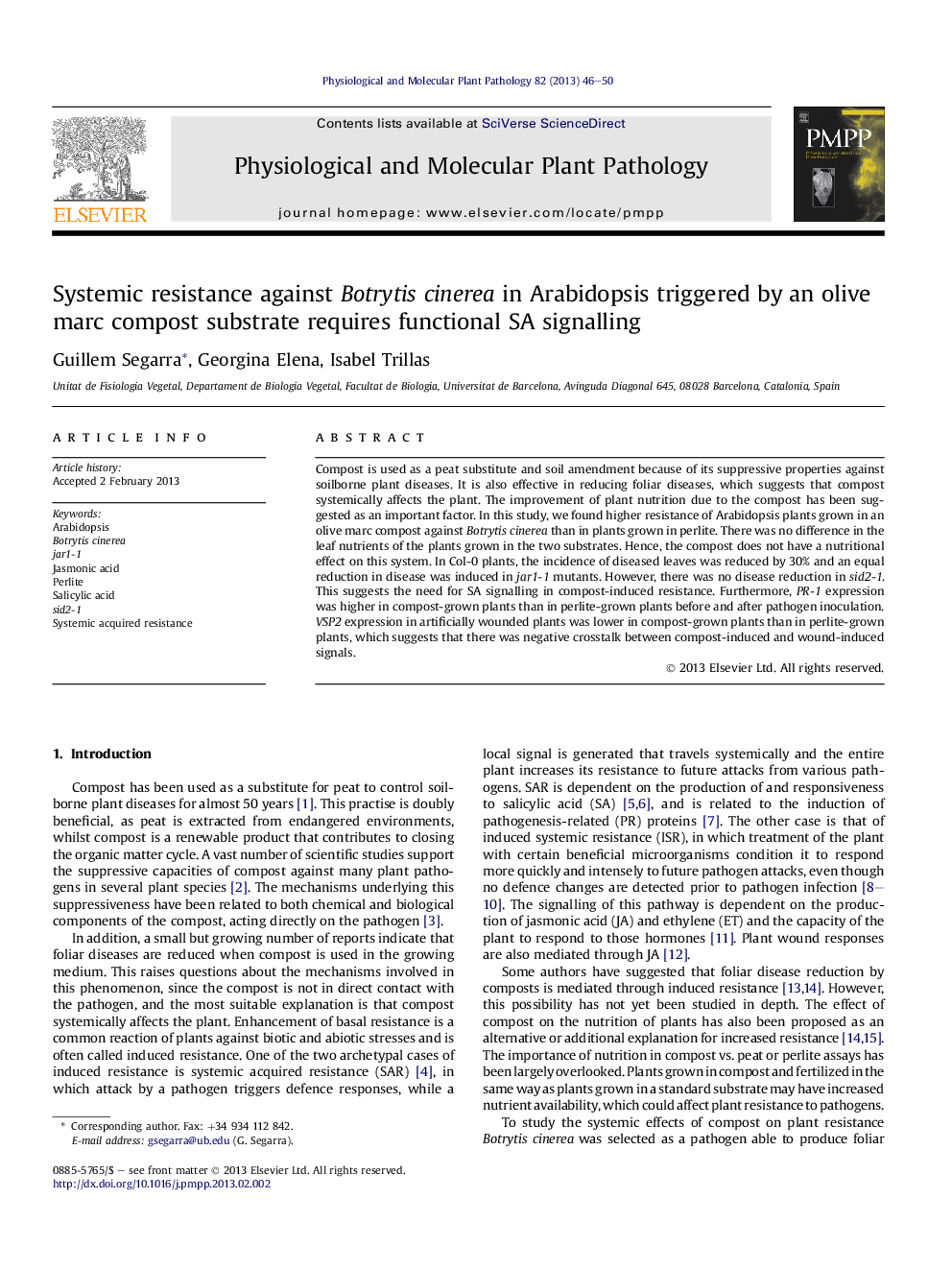| Article ID | Journal | Published Year | Pages | File Type |
|---|---|---|---|---|
| 2836408 | Physiological and Molecular Plant Pathology | 2013 | 5 Pages |
Compost is used as a peat substitute and soil amendment because of its suppressive properties against soilborne plant diseases. It is also effective in reducing foliar diseases, which suggests that compost systemically affects the plant. The improvement of plant nutrition due to the compost has been suggested as an important factor. In this study, we found higher resistance of Arabidopsis plants grown in an olive marc compost against Botrytis cinerea than in plants grown in perlite. There was no difference in the leaf nutrients of the plants grown in the two substrates. Hence, the compost does not have a nutritional effect on this system. In Col-0 plants, the incidence of diseased leaves was reduced by 30% and an equal reduction in disease was induced in jar1-1 mutants. However, there was no disease reduction in sid2-1. This suggests the need for SA signalling in compost-induced resistance. Furthermore, PR-1 expression was higher in compost-grown plants than in perlite-grown plants before and after pathogen inoculation. VSP2 expression in artificially wounded plants was lower in compost-grown plants than in perlite-grown plants, which suggests that there was negative crosstalk between compost-induced and wound-induced signals.
► Increased resistance of Arabidopsis plants grown in an olive marc compost. ► No difference in the leaf nutrients of the plants grown in compost vs. control. ► 30% disease reduction in Col-0 and jar1-1 mutants, no disease reduction in sid2-1. ► PR-1 expression increased before and after pathogen inoculation. ► SA signaling is required in this compost-induced resistance.
